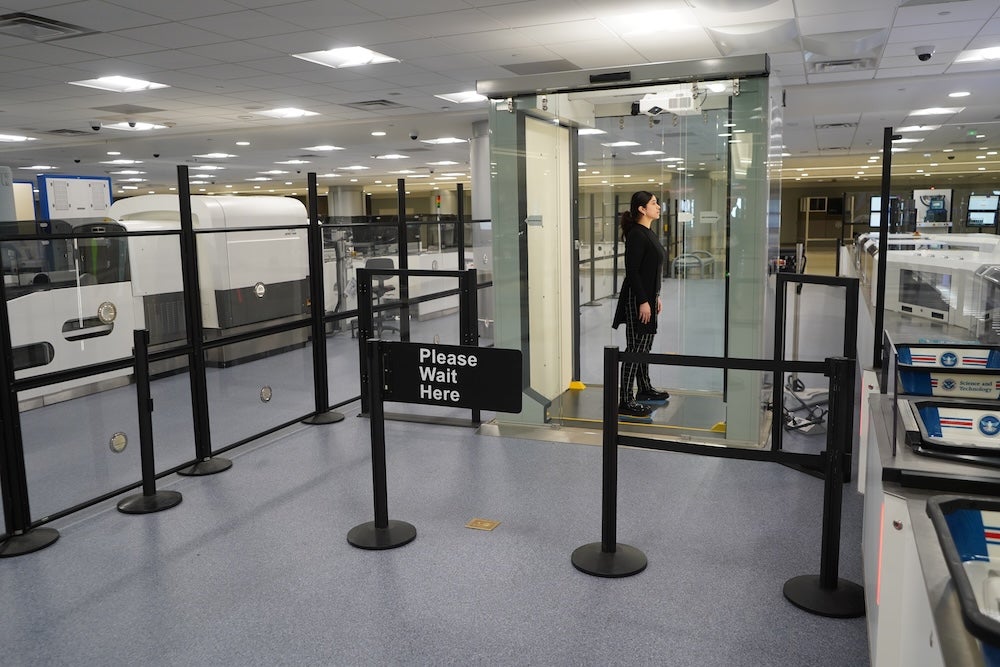The Transportation Security Administration is launching the pilot phase of an autonomous self-screening checkpoint system. Unveiled earlier this week and scheduled to officially open on March 11 at Harry Reid International Airport in Las Vegas, the station resembles grocery store self-checkout kiosks—but instead of scanning milk and eggs, you’re expected to…scan yourself to ensure you aren’t a threat. Or at least that’s what it seems from the looks of it.
“We are constantly looking at innovative ways to enhance the passenger experience, while also improving security,” TSA Administrator David Pekoske said on Wednesday, claiming “trusted travelers” will be able to complete screenings “at their own pace.”
For now, the prototype station is only available to TSA PreCheck travelers. Although it’s possible additional passengers could use similar self-scan options in the future, depending on the prototype’s success. Upon reaching the Las Vegas airport’s “TSA Innovation Checkpoint,” users will see something similar to the standard security checks alongside the addition of a camera-enabled video screen. TSA agents are still nearby, but they won’t directly interact with passengers unless they request assistance, which may also take the form of a virtual agent popping up on the video screen.

The new self-guided station’s X-ray machines function similarly to standard checkpoints, while its automated conveyor belts feed all luggage into a more sensitive detection system. That latter tech, however, sounds a little overly cautious at the moment. In a recent CBS News video segment, items as small as a passenger’s hair clips triggered the alarm. That said, the station is designed to allow “self-resolution” in such situations to “reduce instances where a pat-down or secondary screening procedure would be necessary,” according to the TSA.
[Related: The post-9/11 flight security changes you don’t see.]
The TSA’s proposed solution to one of airports’ most notorious bottlenecks comes at a tricky moment for both the travel and automation industries. A string of recent, high-profile technological and manufacturing snafus have, at best, severely inconvenienced passengers and, at worst, absolutely terrified them. Meanwhile, businesses’ aggressive implementation of self-checkout systems has backfired in certain markets as consumers increasingly voice frustrations with the often finicky tech. Meanwhile, critics contend that automation “solutions” like the TSA’s new security checkpoint project are simply ways to employ fewer human workers who often ask for pesky things like living wages and health insurance.
Whether or not self-scanning checkpoints become an airport staple won’t be certain for a few years. The TSA cautioned as much in this week’s announcement, going so far as to say some of these technologies may simply find their way into existing security lines. Until then, the agency says its new prototype at least “gives us an opportunity to collect valuable user data and insights.”
And if there’s anything surveillance organizations love, it’s all that “valuable user data.”





